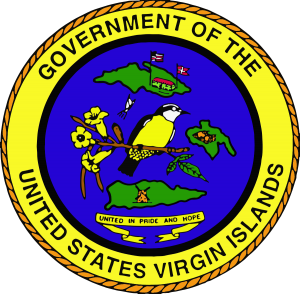$40 Million Annual Payroll Increase, Potential for $200 Million in New Debt and Inflationary Pressure Identified
U.S. VIRGIN ISLANDS — Governor Albert Bryan Jr. has released an initial fiscal impact analysis of legislation recently passed by the 36th Legislature that raises the minimum salary for public sector workers from $27,000 to $35,000, effective October 1, 2025.
The Governor commissioned the analysis from his financial and personnel team to ensure the public and the Legislature fully understand the real and lasting consequences of this mandate on the Government of the Virgin Islands.
“We agree that workers in the Virgin Islands should be paid more,” Governor Bryan said. “In fact, just last year, I supported the notion of an increase to the government’s minimum wage. But this move, as it stands, will place a massive burden on our finances, and—perhaps most concerning—will undoubtedly add to the inflation woes Virgin Islanders are already facing, potentially negating the very increase it intends to provide.”
The Governor emphasized that while the goal of increasing wages is just and necessary, achieving it without destabilizing government services or eroding its purchasing power requires coordination and responsible planning.
Key Findings from the Initial Analysis:
• The measure would increase the government’s payroll and fringe benefits by $40 million annually, raising the total payroll from $488.9 million to approximately $529 million, an 8.2% increase.
• Additional 3% employer contributions to the Government Employees’ Retirement System (GERS) would intensify long-term pension liabilities.
• Estimated increase to the territory’s debt load ranges from $120 million to $200 million over the next three to five years, unless mitigated by new revenues or cost-saving measures.
• The mandated raise affects 679 central government workers directly but would require further salary adjustments for more than 5,200 other employees due to salary compression.
• The law does not account for over 4,100 employees in semi-autonomous agencies and instrumentalities, who would reasonably expect parity, significantly compounding the cost.
• The increase may yield only $6.1 million in new tax revenues, far short of offsetting the projected expenses.
In addition to the fiscal implications, the Governor’s team warns that a sudden increase in public sector wages, without a phased implementation or broader economic reforms, could worsen inflation across the Territory. This may erode the intended gains for workers as the cost of goods, services, and housing continue to rise.
Governor Bryan also pointed to ongoing union-related disruptions within the Virgin Islands Police Department in the St. Thomas–St. John district as evidence of the very real and immediate consequences of enacting broad wage changes without sufficient planning or collaboration.
“This is not a theoretical exercise. We are already seeing the ripple effects in labor relations and operational stability,” the Governor said. “We must make decisions that protect not just our employees, but also the public we serve.”
Governor Bryan reaffirmed his commitment to working closely with the Legislature and labor stakeholders to develop an approach that both honors the dignity of public workers and protects the Territory’s financial stability.
“We can and must do better for our public servants—but we must do it together,” he said. “I am urging the Legislature to join me in a practical, collaborative effort to raise wages responsibly, with thoughtful implementation, long-term planning, and transparency.”
The Governor’s team recommends:
• Phasing in the minimum salary increase over three to five years to reduce budgetary shock.
• Conducting a comprehensive compensation and classification study to ensure equity and prevent salary compression.
• Exploring operational efficiencies to absorb additional costs without cutting core services.
• Strengthening data collection and workforce analysis through interagency coordination.
The Bryan-Roach Administration remains committed to ensuring fair compensation for government employees while upholding the Territory’s financial integrity and protecting the services that Virgin Islanders depend on every day.
###
